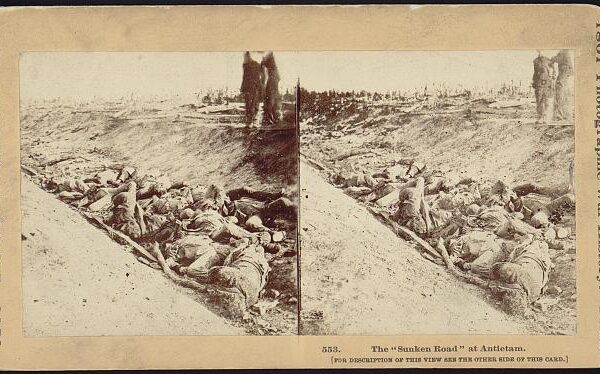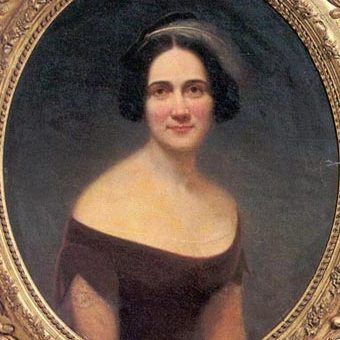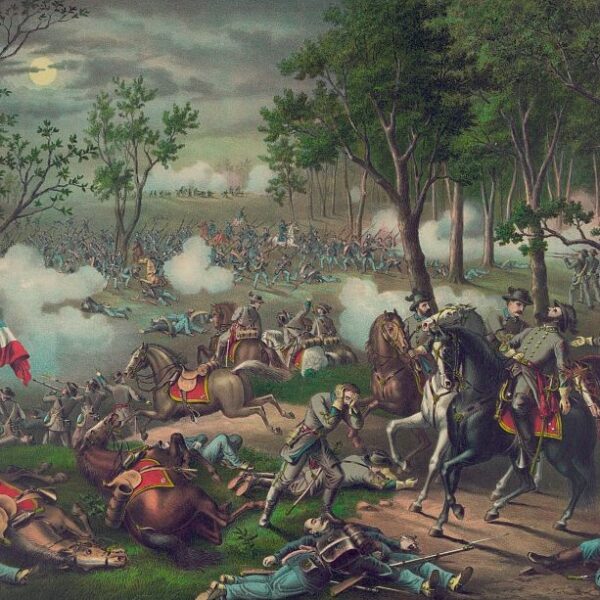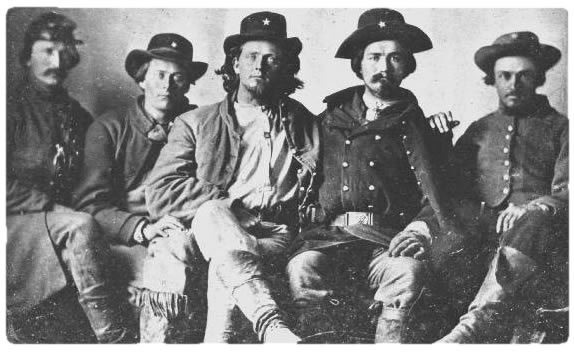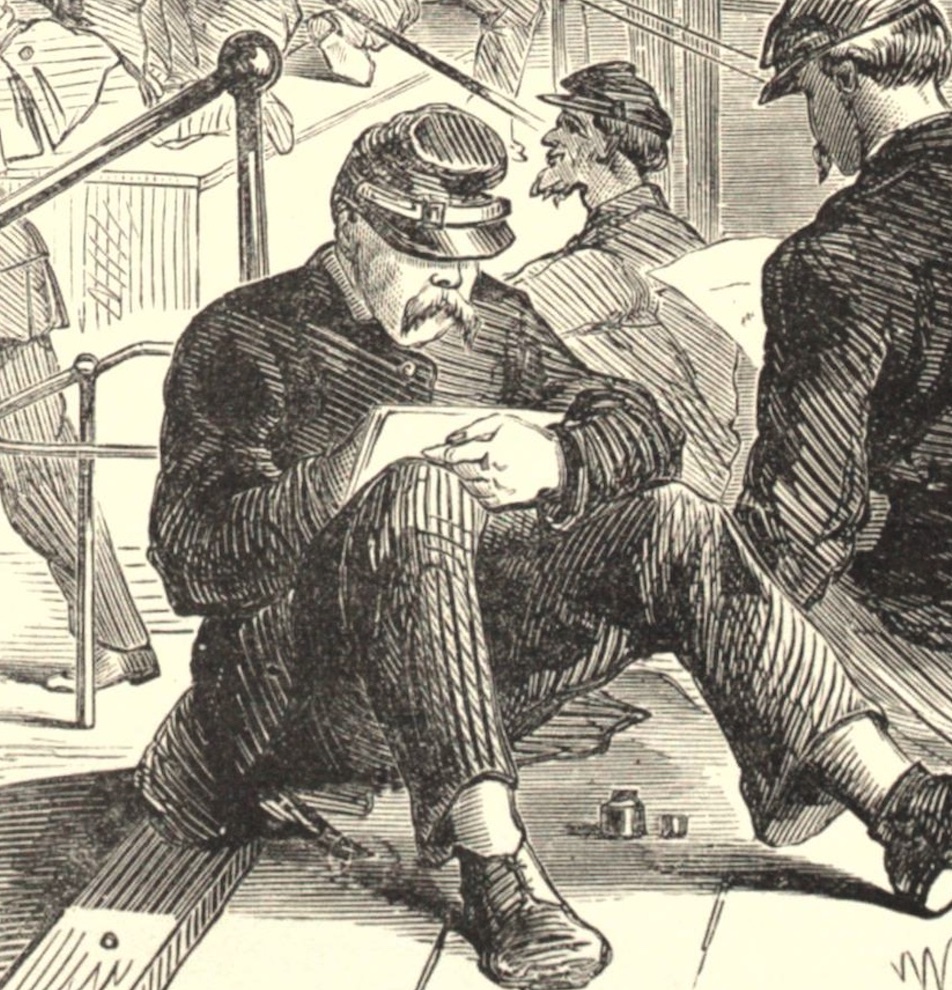 Frank Leslie's Illustrated Newspaper
Frank Leslie's Illustrated NewspaperA Union soldier writes a letter home in an illustration from Frank Leslie’s Illustrated Newspaper.
In September 1861, Byron B. Wilson, 24, enlisted as a private in Company H of the newly forming 4th Vermont Infantry. Over the time of his service, Wilson wrote home regularly; some of his letters to his sister, Persis Wilson Avery, appeared as part of a volume published by the United States Sanitary Commission in 1865 titled Soldiers’ Letters, from Camp, Battlefield and Prison. Two of them are presented below.
In the first letter, Wilson wrote his sister from Camp Griffin in Lewinsville, Virginia:
You are feeling comforted on account of the bad weather, thinking we cannot advance; or, in other words, that I shall not as yet be in battle! Now are you as fully patriotic as a sister of mine ought to be? Are you not willing to give me up, if it be my lot to fall in battle? Certainly it is no harder for me to die than for others; and can it be harder for you to give me up than for others to give up those near and dear to them? If I return at all to Vermont, it will not be until the war is over.
Byron B. Wilson
4th Vermont Vols.
Army of the Potomac
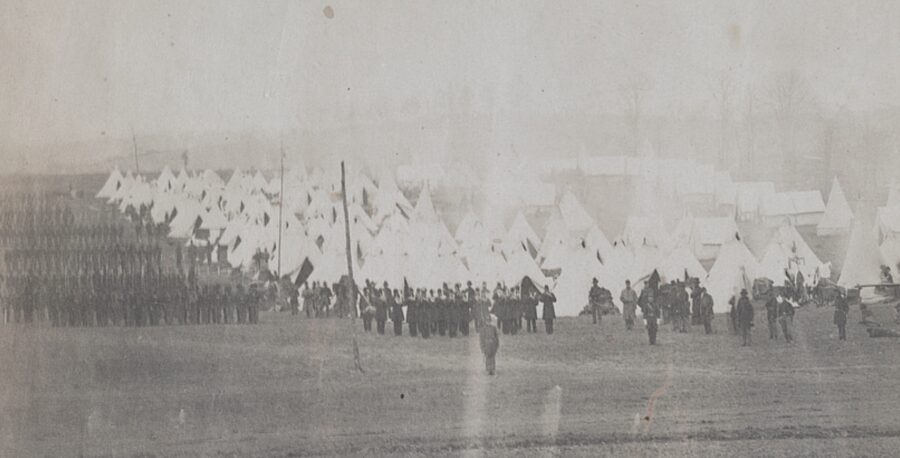 Library of Congress
Library of CongressThe 4th Vermont Infantry at Camp Griffin in 1861.
The following spring, he sent the following letter to Persis to wish her a happy birthday:
Camp before Richmond, 1862
Sister dear —
I thought of you on [June] the seventeenth, the anniversary of the battle of Bunker Hill and of your birth. How I should have liked to be with you on that birthday! But my duties are here, and will be for a long while, I reckon. You are twenty-four—is it possible? Yes, for I am twenty-six. How swiftly have passed these years! How short the time since in childhood we sported together and gambolled gleefully, oblivious of care! Those were happy days, but they are not to return. You express the opinion that your life has been unprofitable. Not so. True, we all see in mature age the follies of our youth, and where we have erred. If we could commence with the knowledge and experience we now have, it would be different; but in our ignorance, youth’s years were as well spent as mature age.
When this rebellion broke out, I felt it to be my duty to help put it down. I think you all feel that our family owes some assistance to the Government. Who could better be spared to render it than I? If I fall, remember me as a patriot and a soldier, though ever so humble.
Byron B. Wilson
Veteran Volunteers
Wilson’s letters were accompanied by the following note by the editors, who relayed the young soldier’s fate:
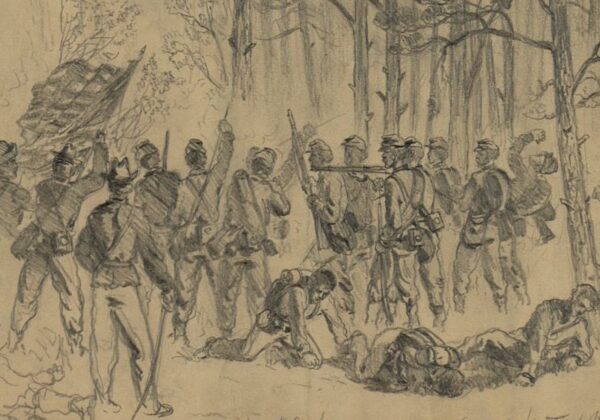 Library of Congress
Library of CongressUnion soldiers fire at the enemy during the Battle of the Wilderness.
Byron B. Wilson,
4th Vermont Vols., Army of the Potomac.
This noble young soldier fell in the “battles of the Wilderness,” May 5th, 1864, after having been engaged in fifteen battles! Antietam, Fredericksburg, Gettysburg, and others equally severe. Fighting bravely, he died at his post, writes one who knew him. “By precept and example, he gave evidence of his soldierly culture. He was a young man of high literary taste and perseverance. In our Lyceum he stood always first. Asa soldier he was unimpeachable, and as an officer highly beloved.” “I could say much in praise of your dear brother,” says another friend; “but all would not bring him back to you. He fell in the Wilderness, and was buried as he fell. He was buried in the silence of the night, but a few rods in front of the enemy’s lines.” The patriotic young Wilson, contemplating the contingencies of life and death, said: “Whatever it maybe, I am content, only that the Union may be preserved.”
Persis Wilson Avery and her husband would have six children. They named their third, a boy born in 1864, Byron Fred Avery, after Persis’ fallen soldier-brother.

